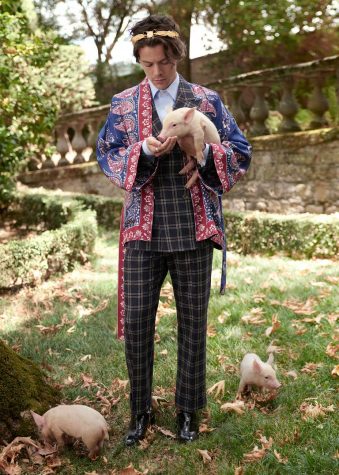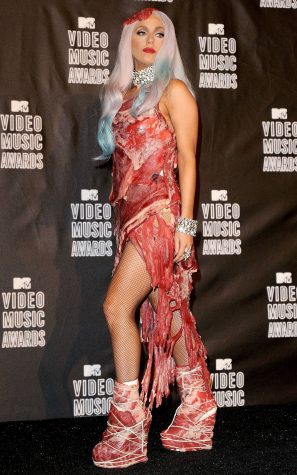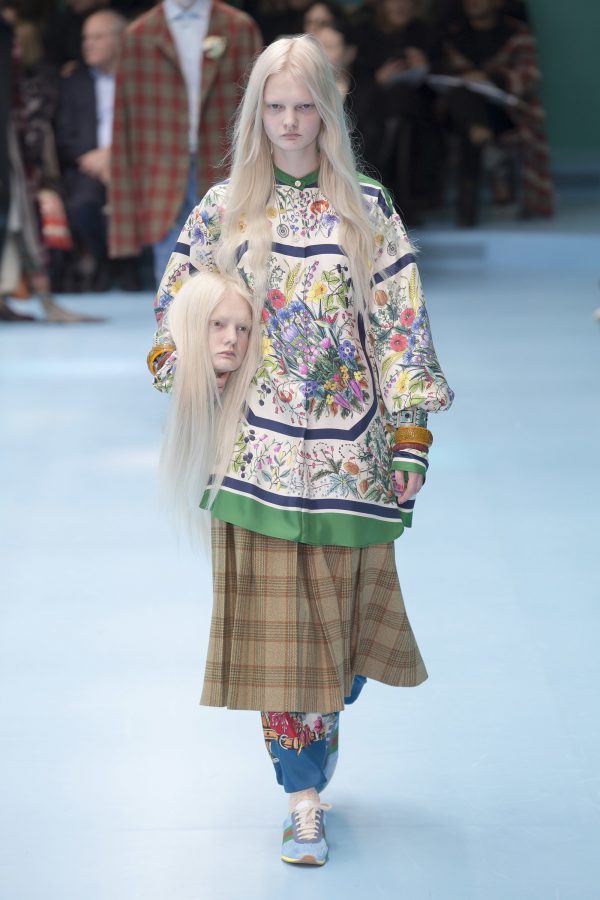“Camp taste is, above all, a mode of enjoyment, of appreciation — not judgment,” Susan Sontag writes in her 1964 essay, “Notes on Camp.’”
As the Metropolitan Museum of Art draws the curtain on its much celebrated 2018 exhibit, “Heavenly Bodies: Fashion and the Catholic Imagination,” the next exhibit to occupy the red carpet and the costume institute is “Camp: Notes on Fashion.” The essay consists of a detailed 58-point treatise where Sontag describes camp as a sensibility that urges people to always see the world with a question mark.
In art and fashion, camp has embodied an aesthetic of glorious excess. Andrew Bolton, the Costume Institute curator at the Met, told The New York Times, “Whether it’s pop camp, queer camp, high camp or political camp — Trump is a very camp figure — I think it’s very timely.”

Judith Miller, a professor of French Literature and Culture at NYU agrees that the world is ready for camp.
“We are going through an extreme camp moment, and it felt very relevant to the cultural conversation to look at what is often dismissed as empty frivolity,” Miller said. “[Camp] can be actually a very sophisticated and powerful political tool, especially for marginalized cultures.”
Apparently, fashion has never been as campy as it is now. A quintessential example of camp in fashion is what Alessandro Michele has done at Gucci. He has famously engaged theatricality and visual exaggeration in his shows; handing models extra eyeballs, baby dragons and replicas of their own heads in his 2018 F/W.
Naturally, Michele is the perfect person to co-chair the Met’s 2019 gala. Another co-chair is pop icon and Gucci muse Harry Styles. In both Gucci campaigns that Styles stars in, he is shown in formal evening wear, while holding farm animals. The duo experiments with the art of camp in a North London chip shop and in the Renaissance gardens of the 16th century Italian villa.
“Campy art installations are [self-conscious] making fun of, or self-conscious performativity in which something that in other instances would appear to be serious,” said Miller. “It’s in the realm of the outrageous, it’s in the realm of the hyperbolic, it’s in the realm of supersized.”
Other co-hosts of the evening’s festivities include Anna Wintour, editor of Vogue and artistic director of Condé Nast; Serena Williams, tennis superstar; and actress and musician Lady Gaga. While Williams’ relation to camp remains a mystery, it’s obvious that Lady Gaga has dabbled in camp more than once.

“There is a way in which I think Lady Gaga camps it up,” Miller said, going on to reference Gaga’s infamous meat dress from the 2010 MTV Video Music Awards. “Even though she was trying to say something through that dress, … it ended up being something that people didn’t take seriously, I think camp sometimes ends up, even if it’s an effort to be taken seriously, not ever feeling very serious.”
Gallatin junior Thalia Clark believes that although camp is timely, it is a step in the wrong direction for the Met as an institution.
“The appreciation of the ostentatious, or the elevation of the mundane [or] average has been expressed in every industry and in every public sphere of the modern world,” she said. “It is no longer acceptable to deem something unacceptable, and therefore the theme of the Met is in that way very appropriate, in that it acknowledges the popular ways of culture.”
The sanctity of the Met to her, lies within its legacy of formality.
“I would say that the Met should be better than that,” she said, with regards to its elite history. “They should be more careful in what they accept and more discerning in what they choose to promote. Camp is not a look that true fashion favors, in my opinion, or at least not to the extent that I’m sure we will see on the red carpet next year. It is a characteristic of the masses, and fashion, while influenced by the masses, should rise above.”
It was Sontag’s intention for camp to be something larger than a style. To her, camp is a celebration of otherness, of excess and nothing too wild to be understood.
“Camp is generous,” Sontag writes. “It wants to enjoy.”
Will the fashion industry indulge itself in camp or will it face a new aesthetic with ambivalence? Look out for the first Monday in May to find out.
Email Jorene He at [email protected].

























































































































































